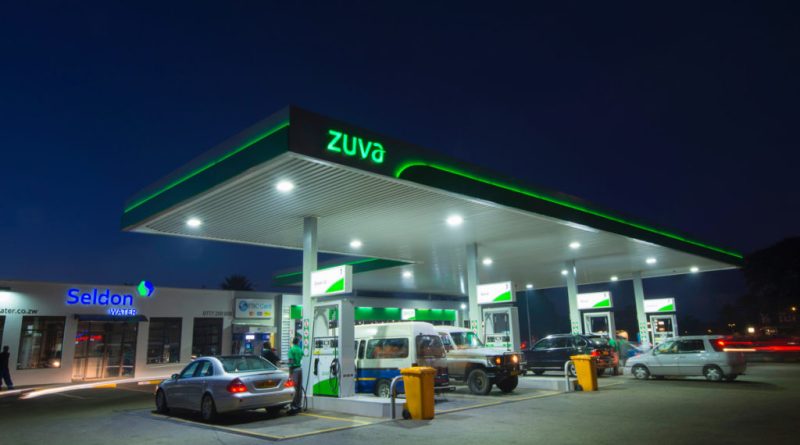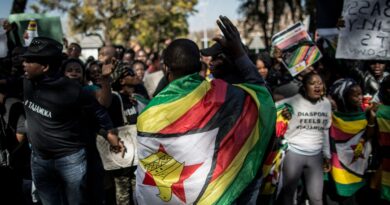Zimbabwe lifts ban on unblended petrol amid ethanol shortages
The Zimbabwe Energy Regulatory Authority (Zera) has temporarily lifted the ban on the selling of unblended petrol due to the seasonal shortages of ethanol, it has emerged.
In August 2024, the government issued Statutory Instrument (SI) 150 of 2024, banning the sale of unleaded fuel, which saw Zera penalising any fuel service station selling unblended fuel.
Zera chief executive officer Edington Mazambani confirmed the new development in an interview with Standardbusiness, but emphasised that it did not mean that SI 150 of 2024 had been repealed.
Mazambani attributed the ethanol shortages to an annual shutdown by ethanol-producing companies.
“SI 150 of 2024 is still applicable, however, in the month of April, those companies that didn’t have ethanol were allowed to uplift unleaded to avoid shortages in the country,” he said.
“The ethanol-producing companies have started operations after the annual shutdown, and we expect ethanol to be readily available, and blending will continue without exceptions.”
Local ethanol producers suspend operations during the rainy season because the wet conditions make the harvesting of sugarcane difficult.
The high moisture content in harvested cane lowers sucrose concentration, which reduces the ethanol yield and makes processing inefficient.
Sugarcane is the primary feedstock for ethanol production.
“Every year they go on annual shutdown, resuming operations in April,” Mazambani said.
“Initially, it’s rainfall-induced from around November or so, with maintenance starting in December and ending in April of every year.”
Zimbabwe is trying to increase ethanol production and storage capacity to ensure a consistent supply, even during the off-crop season.
The country produces approximately 100 million litres of ethanol annually from the two ethanol producers, namely, Green Fuel and Triangle Limited, who produce 80% and 20% of the ethanol, respectively.
Direct Fuel Importers general secretary Bart Mukucha echoed Mazambani’s sentiments, saying the selling of unleaded fuel was temporary.
“What has happened is that the stock of ethanol has run out at the National Oil Infrastructure Company (NOIC) position,” Makucha said.
“There is a shortage of ethanol right now. We are now on ‘E zero’ not because of a change of law, but a result of lack of supplies of ethanol.
“The law is still there, and this is a temporary window of unleaded petrol being available, and it is available by default, but the law SI 150 of 2024 is still standing.
“As long as they get the ethanol, we are still going back to blending.”
He added: “If you are to import unleaded fuel from South Africa by road, it will be about US$0,81, and if you get that in a normal way at NOIC depots in Msasa you are going to get it at a benefit of a lower rate of US$0,55.”
Green Fuel, a leading ethanol producer, has confirmed that it has restarted production after the operational halt that contributed to the blending shortages.
Zimbabwean motorists typically prefer unleaded fuel, as it allows for better fuel consumption, efficiency, and longevity of car engines, as there is no dilutant in the precious liquid.
The country first introduced mandatory petrol blending in 2011 and by 2014, the blending ratio was raised from 10% in 2019 to the current 20%.
Mandatory blending of fuel came against the backdrop of serious fuel shortages that gripped Zimbabwe around that time.
Globally, mandatory blending of fuel has been imposed as a regulatory measure to upscale biofuel production and use by consumers. It was envisaged that the policy would help increase biofuels, reduce the demand for imported petrol and to save foreign currency.
Zimbabwe has been producing ethanol for over 20 years and primary producers are Green Fuel and Fuel Ethanol Company of Zimbabwe (FeCZ).
Green Fuel is a joint venture between the government’s Agricultural and Rural Development Authority and private companies.
FeCZ is a joint venture between Triangle Limited and NOIC.
Most motorists in Zimbabwe are wary of blended fuel because of a tendency by some service stations to go beyond the permitted blending proportions, which poses a huge risk to car engines.
Zera regularly fines service stations that are caught violating the blending policy, but the practice is still very rampant across the country. The Standard




